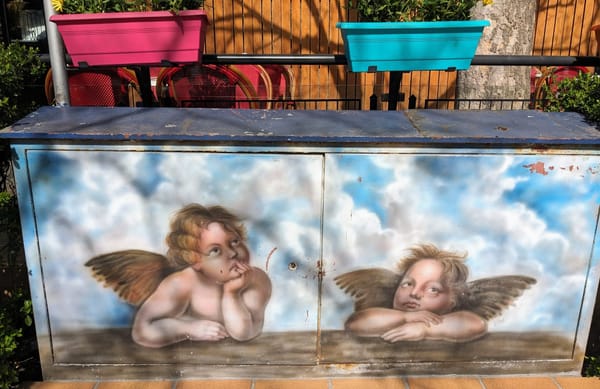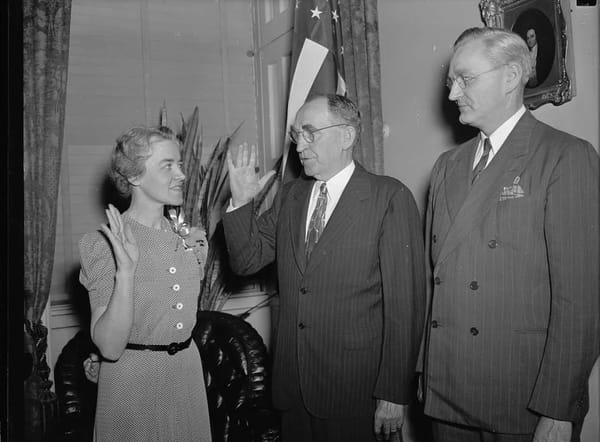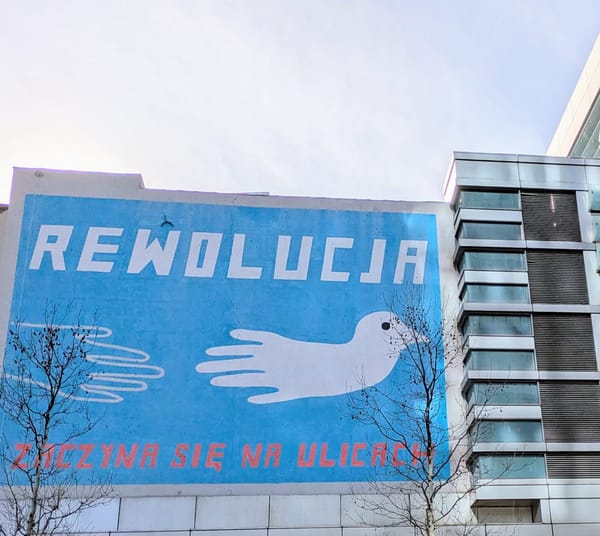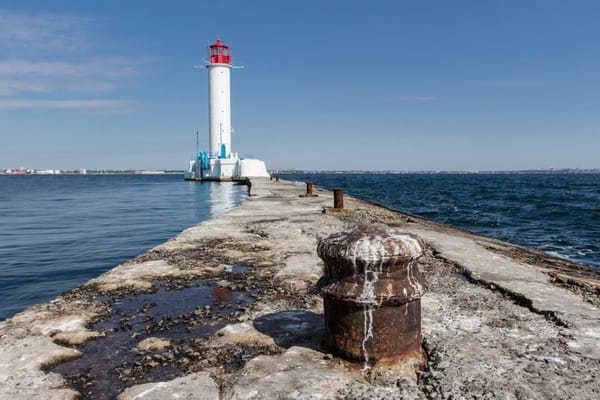"We cannot allow ourselves to feel powerless"
A Ukrainian journalist reminds us of what is at stake
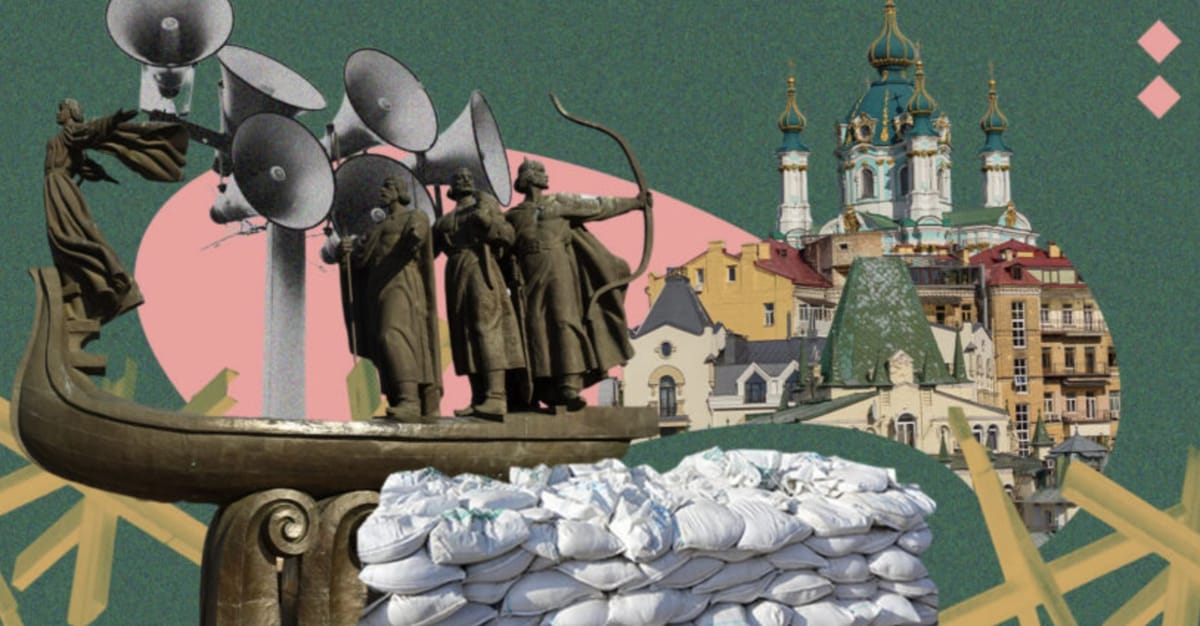
For those of us who have made the commitment to inquiry over reductionism and curiosity over cynicism, this is a trying moment. The challenges to independent media and journalism are significant. And the impact of our broken discourse—for which we in the media have to take some/much responsibility—is clear from the cognitive dissonance that we read/see/hear in the post-election analysis chatter. The temptation is to place blame rather than thoughtfully consider the choices people in all sectors have to make to mitigate the effect of rising authoritarian forces. (The leaders of which Timothy Snyder has artfully portrayed as a sort of dystopian Gilligan’s Island).
Thanks for reading Notes from New Europe! This post is public so feel free to share it.
I want to be clear about a few things in this moment:
- Ukraine was on the ballot last week and most of us in the US media did not frame this issue effectively;
- the future of Ukraine is also the future of Europe;
- & nobody understands the importance of a strong EU better than the “new Europeans” on the eastern edge of Europe.
Let’s not forget to listen to them.

Several of you seemed to appreciate Anastasia Rudenko’s wisdom and openness last week as I asked her about running the Solutions Journalism organization Rubryka, so I decided to check back in with her after the US elections for a bit of an update, and some guidance. Here is what I learned with her:
GG: As we process the results from our election here in the US and consider what a second Trump presidency means for domestic issues like women's health care access and our economy, we have to also anticipate significant changes in foreign policy. And that includes US support for Ukraine. How did you and your friends, family, and colleagues react? Will it change anything for Rubryka and your approach in your reporting?
Rudenko: I’ll be honest: there’s a nauseating uncertainty in the air. The elections are over, and the future of Ukraine - my future, and that of my family and colleagues - depends greatly on the outcome, on the response, and on how the commitment to ending this war will be fulfilled. When Russia still holds the upper hand and shows no real desire for genuine negotiations, I’d like to remind everyone: please don’t forget what is truly at stake.
In light of these developments, we cannot allow ourselves to feel powerless. On the contrary, I see a great mission in ensuring that Rubryka continues to practice solutions journalism - to empower our audience, to provide more practical tools, and to become an even louder voice from Ukraine, especially reaching audiences beyond our borders. This isn’t just about reaching out to the US. it’s about amplifying our voice across the European Union and on every platform possible, because Ukraine’s security is Europe’s security. We continue to hope that the US will uphold its leadership in supporting Ukraine and that we can avoid mistakes that would cost us dearly - in lives and in sovereignty.
Having just returned from a trip to the US, I realize more than ever how essential this work is. Every day, Ukraine faces attacks on an unprecedented scale. My efforts were just a drop in the ocean; we need as many powerful voices as possible. Now is the time to strengthen horizontal connections, build partnerships wherever we can, and face these uncertainties together.
Notes from New Europe is a reader-supported publication. To receive new posts and support my work, consider becoming a free or paid subscriber.
GG: What would you say to members of the US Congress about how democracies can and should support Ukrainian civic institutions, namely strong independent media?
Rudenko: Please vote to keep supporting Ukraine, especially our democratic institutions, like independent media and civil society. Progress can’t stop now. Independent media helps turn people into active citizens, gives them a voice, and holds those in power accountable. We are the guardrails of democracy, ensuring that the truth is told without fear.
I believe tough times make strong people - and strong institutions. Now more than ever, we need resources to keep these organizations and media alive. Rebuilding them later would be much harder, maybe even impossible.
GG: As I'm asking you about our election results, I'm seeing more news of major Russian drone attacks on Kyiv. How do you and your team manage to both try to stay safe while also doing your work, which is never more urgent than at these moments?
Rudenko: Thank you for this question. It’s a difficult and very important one. In October, our team in Kyiv barely got any sleep. With constant air raid alerts at night, Russian drones attacking with new tactics, and limited defenses to shoot them down, we’re under intense strain. Drones are striking different parts of the city, making it incredibly challenging to balance our roles as journalists while dealing with the physical and emotional exhaustion.
Truthfully, you never get used to this. There are no real days off or chances to fully rest. But you’re absolutely right - showing the world this injustice and cruelty is our drive. We want people to see not only what’s happening to us but also how we’re coping. This motivates us every day. We ask for your continued support because resilience against aggression is something we must build together.
Dear reader, please share this newsletter with those you think can benefit from learning with people like Anastasia. I’ll be back in Eastern Europe in two weeks and I will be collecting more lessons from the region for us. As always, I welcome your questions and your feedback.
